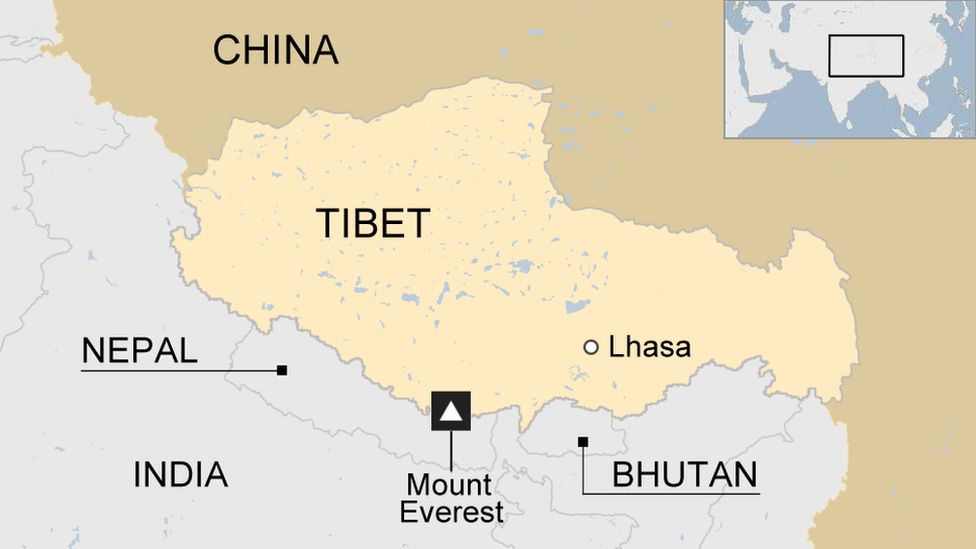In a bold move, U.S. lawmakers have passed a groundbreaking bill aimed at reshaping the narrative around China’s control over Tibet. This legislation, now awaiting President Biden’s signature, seeks to challenge China’s long-standing historical claims and promote dialogue between Beijing and the Dalai Lama, Tibet’s exiled spiritual leader.
Confronting China’s Historical Assertions
The “Promoting a Resolution to the Tibet-China Dispute Act” directly confronts China’s assertion of controlling Tibet since ancient times. This bill aims to:
1. Actively counter China’s claims about Tibet’s history and status
2. Officially declare the Tibet-China dispute as unresolved
3. Expand the definition of Tibet beyond China’s designated autonomous region
By taking these steps, U.S. lawmakers are signaling a more assertive stance on the Tibet issue, potentially altering the diplomatic landscape between the U.S. and China.
Fostering Dialogue and Enhancing Support for Tibet
A crucial aspect of the bill is its push for renewed negotiations between China and Tibetan representatives. The legislation:
1. Calls for talks without preconditions
2. Seeks involvement of the Dalai Lama or democratically elected Tibetan leaders
3. Empowers the U.S. State Department to coordinate international efforts for a negotiated agreement
Furthermore, the bill allocates resources to counter what it terms as China’s “disinformation” about Tibet. This move could significantly impact how Tibet’s history and current situation are perceived globally.
China’s Unwavering Stance on Tibet
China’s Position Remains Firm:
1. Claims over 700 years of central rule in Tibet
2. Rejects discussions on Tibetan autonomy
3. Considers Tibet an integral part of China
4. Views the Dalai Lama as a separatist figure
The new U.S. bill challenges this narrative, potentially complicating U.S.-China relations further and forcing a reassessment of China’s Tibet policy.
Strong Bipartisan Support and International Implications
The overwhelming bipartisan support for this bill underscores its significance in U.S. foreign policy. Lawmakers emphasized:
1. The need to stand with Tibetans in their struggle for self-determination
2. The importance of countering China’s alleged misinformation campaigns
3. The urgency of resolving the long-standing dispute between Tibet and China
This legislation may influence other countries’ approaches to the Tibet issue, potentially leading to increased international pressure on China to address Tibetan concerns.
Historical Context: The Complex China-Tibet Relationship
The China-Tibet conflict has deep historical roots that continue to shape current tensions:
1. Tibet declared independence in 1913, a move unrecognized by China
2. China’s forceful integration of Tibet in the 1950s
3. The 1959 Tibetan Uprising and the Dalai Lama’s subsequent exile to India
4. Ongoing tensions over cultural and religious freedoms in Tibet
China’s policies in Tibet have faced international criticism, with concerns about human rights violations and cultural suppression frequently raised by various nations and organizations.
Impact on India-China Relations: The Tibet Factor
The Tibet issue significantly affects India-China dynamics, adding another layer of complexity to their already strained relationship:
1. Geopolitical importance of Tibet’s location, bordering India
2. Strategic value of Tibet’s water resources, crucial for both nations
3. India’s shifting stance on Tibet’s status over the decades
4. The Dalai Lama’s presence in India as a persistent point of contention with China
These factors contribute to the delicate balance India must maintain in its relations with China while also addressing its own strategic interests.
Looking Ahead: Potential Outcomes and Challenges
As this bill moves towards becoming law, it marks a potential shift in international approaches to the Tibet-China dispute. By challenging China’s narrative and pushing for dialogue, the U.S. is taking a more active role in this long-standing issue. The coming months will likely see:
1. Increased diplomatic activity surrounding Tibet
2. Potential heightening of tensions as China responds to this new development
3. Possible shifts in other countries’ policies towards Tibet and China
4. Renewed focus on human rights and cultural preservation in Tibet
China’s reaction to this bill will be crucial in determining its effectiveness. While Beijing is likely to strongly oppose this move, it may also prompt a reevaluation of its Tibet policies.
In conclusion, the passage of this bill represents a significant development in the ongoing Tibet-China issue. By directly challenging China’s claims and promoting dialogue, the U.S. is attempting to change the status quo. However, the real impact of this legislation will depend on its implementation and the international community’s response. As the situation unfolds, the world will be watching to see how this new chapter in Sino-Tibetan relations develops, and whether it can lead to meaningful progress in resolving this decades-long dispute.
ALSO READ: Medha Patkar sentenced to 5 months in jail and a fine of 10 lakh rupees in ………?
